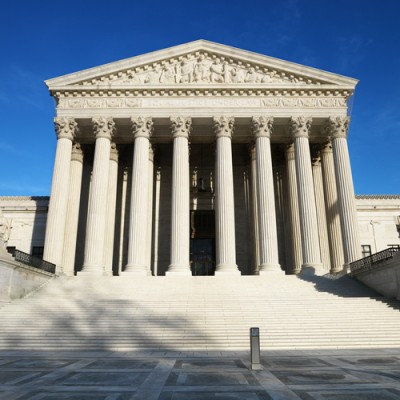Georgia capital defendant has right to appeal based on racist statements from juror, SCOTUS says

Shutterstock.com.
Keith Tharpe, a black Georgia death row inmate who was found guilty of killing his sister-in-law and kidnapping his estranged wife in 1990, may be entitled to a certificate of appealability due to racist statements made by a white juror during deliberations, the U.S. Supreme Court ruled Monday.
Tharpe was sentenced to death in 1991 after being convicted of malice murder and two counts of aggravated kidnapping. Seven years later, defense attorneys interviewed juror Barney Gattie, who is white. In a sworn affidavit Gattie stated that “there are two types of black people: 1. Black folks and 2. [N-word],” the opinion states. Gattie also said that Tharpe “wasn’t in the good black folks category in my book…”
Additionally, the affidavit states that Gattie knew Jaquelin Freeman, Tharpe’s sister-in-law, and saw her and her family as “what he would call a nice black family,” according to the opinion, Tharpe v. Sellers (PDF).
Also, Gattie told Tharpe’s lawyers that some jurors thought Tharpe should receive the death penalty as an example to black people who kill other blacks. But that wasn’t Gattie’s reasoning, he stated in the affidavit. Rather, after studying the Bible he found himself wondering if “black people even have souls.”
“Gattie’s remarkable affidavit—which he never retracted—presents a strong factual basis for the argument that Tharpe’s race affected Gattie’s vote for a death verdict,” the majority wrote.
Previously, a state post-conviction court rejected Tharpe’s petition, finding that he could not prove juror misconduct because Georgia law doesn’t allow parties to impeach jury verdicts with post-trial testimony, and he did not raise the issue on direct appeal. The court also rejected Tharpe’s ineffective assistance of counsel argument.
Later, a U.S. District Court for the Middle District of Georgia denied Tharpe’s writ of habeas corpus petition based on juror bias, and the finding was affirmed by the Atlanta-based 11th U.S. Circuit Court of Appeals.
Tharpe petitioned to reopen his habeas petition last June, citing new Supreme Court opinions regarding grants for certificate of appealability claims based on extraordinary circumstances. The district court and the 11th Circuit again denied Tharpe’s motion. On Sept. 26, the high court granted a stay for Tharpe’s execution.
Two members of Tharpe’s jury were black, according to a dissent written by Justice Clarence Thomas and joined by Justices Samuel A. Alito, Jr. and Neil M. Gorsuch. Thomas writes that during a state court deposition, Gattie claimed that while he did sign the affidavit, he did not swear to it. Gattie also testified that on the day he signed the document, he’d had “[m]aybe a 12 pack, [and] a few drinks of whiskey over the period of the day.”
Also, the dissent mentioned a second affidavit from Gattie obtained by the state, in which the man stated he “did not vote to impose the death penalty because [Tharpe] was a black man,” but because trial evidence justified the death sentence, and the defendant showed no remorse.
“The opinions in the affidavit are certainly odious. But their odiousness does not excuse us from doing our job correctly, or allow us to pretend that the lower courts have not done theirs,” Thomas wrote in the dissent.
“In bending the rules here to show its concern for a black capital inmate, the court must think it is showing concern for racial justice. It is not,” the dissent states.
The majority in Tharpe v. Sellers acknowledges that Tharpe faces a “high bar” for showing that jurists of reason could find that that the district court abused its discretion in denying his motion.
“It may be that at the end of the day, Tharpe should not receive a COA. And review of the denial of a COA is certainly not limited to grounds expressly addressed by the court whose decision is under review. But on the unusual facts of this case, the Court of Appeals’ review should not have rested on the ground that it is indisputable among reasonable jurists that Gattie’s service on the jury did not prejudice Tharpe,” the majority writes.



